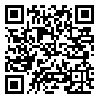Mon, Feb 2, 2026
| فارسی
Volume 28, Issue 2 (Summer 2022)
IJPCP 2022, 28(2): 196-209 |
Back to browse issues page
Download citation:
BibTeX | RIS | EndNote | Medlars | ProCite | Reference Manager | RefWorks
Send citation to:



BibTeX | RIS | EndNote | Medlars | ProCite | Reference Manager | RefWorks
Send citation to:
Yarahmadi M, Hafezi F, Makvandi B. Effectiveness of Cognitive-Behavioral Therapy for Insomnia on Emotional Regulation and Dysfunctional Sleep Beliefs Among Insomnia Patients. IJPCP 2022; 28 (2) :196-209
URL: http://ijpcp.iums.ac.ir/article-1-3530-en.html
URL: http://ijpcp.iums.ac.ir/article-1-3530-en.html
1- Department of Health Psychology, Khorramshahr International Branch, Islamic Azad University, Khorramshahr, Iran.
2- Department of Psychology, Faculty of Humanities, Ahvaz Branch, Islamic Azad University, Ahvaz, Iran. ,Febram315@yahoo.com
3- Department of Psychology, Faculty of Humanities, Ahvaz Branch, Islamic Azad University, Ahvaz, Iran.
2- Department of Psychology, Faculty of Humanities, Ahvaz Branch, Islamic Azad University, Ahvaz, Iran. ,
3- Department of Psychology, Faculty of Humanities, Ahvaz Branch, Islamic Azad University, Ahvaz, Iran.
Abstract: (4910 Views)
Objectives: Human body needs an adequate amount of night’s sleep after a long day to regain its power. This study aims to investigate the effectiveness of cognitive-behavioral therapy for insomnia (CBT-I) on emotional regulation and dysfunctional sleep beliefs among insomniac patients.
Methods: This was a quasi-experimental study with a pretest, post-test, follow-up test, and a control group. The sample included 43 people referring to sleep disorders clinics in Rasoul Akram Hospital and two private clinics for psychiatrists with a sleep fellowship in Tehran City, Iran in 2020. Of the 43 patients suffering from insomnia, according to the Diagnostic and Statistical Manual of Mental Disorders, 5th edition (DSM-5), 36 individuals were selected based on the inclusion and exclusion criteria, of which 20 cases were selected and randomly assigned to an experimental (n=10) and a control group (n=10).
Results: The results demonstrated a significant difference between the emotional regulation and dysfunctional beliefs scores of the experimental and control groups in the post-test (P<0.05). The results of the follow-up test indicated the sustainable effects of the therapeutic intervention on emotional regulation and dysfunctional sleep beliefs of the experimental and control groups compared to the pretest (P<0.05).
Conclusion: Considering the significant effects of CBT-I on insomnia and dysfunctional sleep beliefs in the insomniac, this treatment can be used to improve their condition in sleep laboratories or other clinics.
Methods: This was a quasi-experimental study with a pretest, post-test, follow-up test, and a control group. The sample included 43 people referring to sleep disorders clinics in Rasoul Akram Hospital and two private clinics for psychiatrists with a sleep fellowship in Tehran City, Iran in 2020. Of the 43 patients suffering from insomnia, according to the Diagnostic and Statistical Manual of Mental Disorders, 5th edition (DSM-5), 36 individuals were selected based on the inclusion and exclusion criteria, of which 20 cases were selected and randomly assigned to an experimental (n=10) and a control group (n=10).
Results: The results demonstrated a significant difference between the emotional regulation and dysfunctional beliefs scores of the experimental and control groups in the post-test (P<0.05). The results of the follow-up test indicated the sustainable effects of the therapeutic intervention on emotional regulation and dysfunctional sleep beliefs of the experimental and control groups compared to the pretest (P<0.05).
Conclusion: Considering the significant effects of CBT-I on insomnia and dysfunctional sleep beliefs in the insomniac, this treatment can be used to improve their condition in sleep laboratories or other clinics.
Keywords: Cognitive-behavioral therapy for insomnia, Emotional regulation, Dysfunctional sleep beliefs
Type of Study: Original Research |
Subject:
Psychiatry and Psychology
Received: 2021/07/13 | Accepted: 2021/10/31 | Published: 2022/07/1
Received: 2021/07/13 | Accepted: 2021/10/31 | Published: 2022/07/1
| Rights and permissions | |
 |
This work is licensed under a Creative Commons Attribution-NonCommercial 4.0 International License. |






